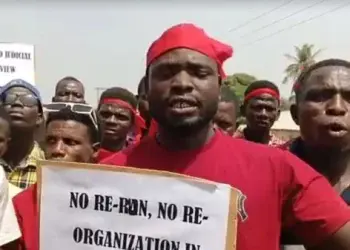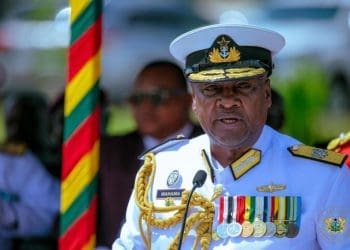The United States has restored full visa privileges to Ghanaians after months of tension, following Ghana’s agreement to accept deportees under a new bilateral arrangement.
The decision marks the end of restrictions that had strained relations between the two countries and disrupted the mobility of Ghanaian travellers.
In a statement published on its social media handles, the U.S. Embassy in Accra confirmed that “the maximum validity periods for all categories of nonimmigrant visas for Ghanaians have been restored to their previous lengths.”
This means that the B1/B2 visitor visa once again carries a maximum validity of five years with multiple entries, while the F1 student visa has been restored to four years with multiple entries.
The swift lifting of restrictions came just days after the first batch of 14 deportees arrived in Accra, underscoring Washington’s satisfaction with Ghana’s newfound cooperation on removals.
From resistance to compliance
For years, Ghana had resisted U.S. demands to accept deportees, particularly individuals who were not Ghanaian nationals but West Africans removed under Section 241(b) of the U.S. Immigration and Nationality Act.
That provision gives American authorities the discretion to deport individuals either to their home country, the last country they departed from, or any country willing to accept them.
Accra’s reluctance drew repeated warnings from Washington, which accused Ghana of obstructing the removal process.
In response, the Trump administration wielded one of its most potent diplomatic tools: visa sanctions.
In June, the United States imposed strict measures on Ghana, slashing most visa validity periods to just three months and restricting them to single entry.
The restrictions disrupted business, education, and family travel, while also straining diplomatic relations.
Behind the scenes, Ghana’s position became increasingly untenable, as U.S. officials threatened further penalties — including a total visa suspension — unless deportations were facilitated.
Economic pressure
Beyond immigration, Ghana faced mounting economic pressures from Washington.
The imposition of a 15% tariff on Ghanaian exports to the U.S. effectively dismantled duty-free benefits under the African Growth and Opportunity Act (AGOA).
Added to that, Ghana’s blacklisting from financial assistance programs following its sovereign debt default left the country in a weakened negotiating position.
These economic levers, combined with travel sanctions, gave Washington significant leverage.
Ultimately, Ghana yielded, agreeing to receive deportees despite earlier claims that many were not its citizens.
First arrivals
The first 14 individuals deported under the new arrangement touched down in Accra last week, signaling a major shift in Ghana’s stance.
Though the government has remained largely silent on the matter, the U.S. Embassy’s swift reversal of visa restrictions makes clear that Washington views Ghana’s cooperation as satisfactory.
A test of sovereignty
For many observers, the development reflects the complexities of U.S.-Africa relations, where economic dependence and migration pressures often collide with national sovereignty.
While Ghana has preserved its citizens’ ability to travel freely to the United States for education, business, and family visits, it has also bowed to American pressure in an area where it once resisted fiercely.
The broader implications are likely to reverberate across the subregion.
Ghana is not the only African nation that faced U.S. visa sanctions for refusing deportees, but its capitulation sets a precedent that may influence how others respond to similar demands.
Looking ahead
As relations normalize, Ghana now faces the challenge of managing the returnees and addressing public unease over the perception that it has been forced into compliance.
At the same time, thousands of Ghanaian students, entrepreneurs, and families will welcome the restoration of visa privileges, which had complicated travel plans and disrupted lives since the restrictions were imposed.
For Washington, the episode underscores the effectiveness of visa restrictions as a foreign policy tool, blending immigration enforcement with diplomatic leverage.
For Ghana, it is a sobering reminder of the delicate balance between asserting sovereignty and navigating the realities of global power dynamics.












